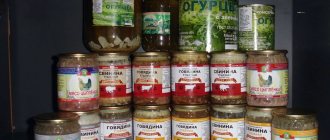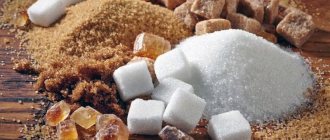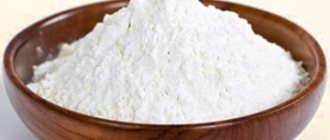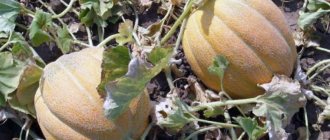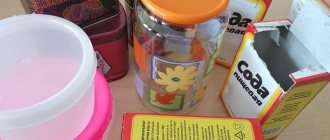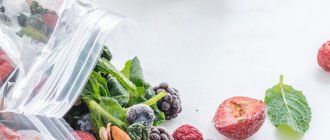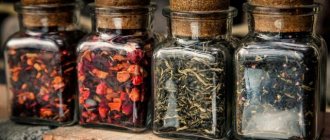In order to cook compote, fresh, frozen or dried berries or fruits are suitable. This drink will bring much more benefits than any juice bought in a store. The juice contains various additives to increase shelf life, coloring agents and stabilizers. Therefore, if you make a choice, it is better to stop at making a fruit and berry decoction. Especially if this drink is intended for children. Homemade decoction does not contain preservatives, and therefore it cannot remain fresh for a long time even at low temperatures. But there are rules here, subject to which you can store compote in the apartment for quite a long time.
Is it possible to drink compote from plums with pits?
Plum compote with pits
Everyone, without exception, will like it, but especially the one who will cook it, because you don’t need to have any special culinary skills to brew such a flavorful drink.
It is delicious both
hot and cold.
Interesting materials:
Why did the minced meat turn out liquid? Why does minced meat remain red after cooking? Why is the minced meat in Manti red? Why can't paramedics wear shoe covers? Why does the violet dry out? Why does Ficus Lyrata shed its leaves? Why did the ficus drop its leaves? Why does Firefox start multiple processes? Why aren't pistachios sold peeled? Why is fleece warm?
How to determine if compote is expired
Consumption of expired products is extremely dangerous to human health. Therefore, you should not drink homemade compote if signs of expired fruit are detected. A spoiled drink has a rather unpleasant odor . The solution becomes very cloudy. Mold deposits may appear on the berries. A rather dangerous manifestation of an expired product is swelling of the can. Damage to the drink may be due to poor quality sterilization or storage in inappropriate conditions.
But the most common reason for expiration is attempts to use the product after the expiration date. If the product does not contain mold, you can boil the drink for half an hour. Thus, the shelf life will extend for another day. It is worth noting that the second or third boiling is ineffective in any case. Reusing containers for preservation is strictly not recommended, even after thorough sterilization.
Storage rules
In ancient times, the aromatic drink was called “uzvar”. The word “compote” came to Russia from sophisticated France. However, the method of preparing a tasty drink has not changed throughout its history. Depending on the time of year, compotes are made from fresh fruits (cherries, grapes, currants, strawberries and raspberries) or dried fruits.
Immediately after the drink has cooled, it is poured into sterile glass jars or plastic containers. The bottles must be new, since even in well-washed containers the broth will deteriorate faster. Plastic is also used for freezing, because glass can burst under the influence of subzero temperatures.
When frozen, freshly brewed compote will retain its beneficial properties for six months.
Vitamins
| Vitamins | Quantity | Norm |
| Vitamin A | 11.9 mcg | 900 mcg |
| beta carotene | 0.072 mg | 5 mg |
| Vitamin B1 | 0.007 mg | 1.5 mg |
| Vitamin B2 | 0.009 mg | 1.8 mg |
| Vitamin B4 | 0.65 mg | 500 mg |
| Vitamin B5 | 0.007 mg | 5 mg |
| Vitamin B6 | 0.009 mg | 2 mg |
| Vitamin B9 | 0.13 mcg | 400 mcg |
| Vitamin C | 0.41 mg | 90 mg |
| Vitamin E | 0.138 mg | 15 mg |
| Vitamin H | 0.013 mcg | 50 mcg |
| Vitamin K | 0.5 mcg | 120 mcg |
| Vitamin PP | 0.1175 mg | 20 mg |
| Niacin | 0.078 mg | ~ |
Deadlines
Let's take a closer look at the various storage options.
At room temperature
The minimum storage time for compote is at room temperature. On the kitchen table, the compote will begin to sour after 5-7 hours. However, its “term” can be extended, taking into account the following recommendations:
- as soon as the broth has cooled, it is poured into a clean container (preferably ceramic);
- the decanter is placed in a spacious container with cold water and sent to the cellar - the room for storing compote should be dark and cool;
- The liquid in which the jug of the drink is stored must be changed or ice must be added to it first.
Such storage will allow you to keep the compote fresh for no more than a day. Then the fermentation process will begin, and eating it will become impossible.
In a refrigerator
Fruit and berry decoction is stored in the refrigerator for no more than 2 days (at 2-6 degrees Celsius). In winter, the drink can also be placed on the loggia/balcony. If the remnants of the healthy drink still remain, then on the 3rd day the broth must be thoroughly boiled and consumed.
Also, the shelf life of the drink depends on the ingredients. For example, a popular dried fruit compote will “last” up to 4 days at a temperature of +10-15 degrees. The healthy drink is brewed all year round. It is rich in vital vitamins and microelements and is recommended for use by young children and older people.
After 1-2 days, a decoction of dried fruits only becomes tastier, acquiring a rich color and aroma. At this time, it must be strained and poured into a glass container. On the 5th day, the compote is put into the refrigerator, where it will remain for another 2-4 days.
The cherry compote requires a separate discussion. A drink made from fruits with seeds can be stored for no more than 24 hours. If the cherries are pitted, the broth will last up to 2 days. The storage temperature of cherry compote varies from +2 to +15 degrees above zero.
Excessive “sourness” of the compote can be removed by straining the broth 4 hours after preparation. Store cherry compote in a glass container, as a ceramic carafe may become stained.
Canned
As for preservation, no special conditions are required for winter preparations. However, the jars should be stored in a dark, dry place. In addition, it is not recommended to store unopened canned compote in the kitchen cabinet of a city apartment. The fact is that the steam emanating from the stove will cause the lids to swell. The ideal place to prepare for the winter is a cellar or an insulated loggia.
The shelf life of preservation should not exceed 2 years.
An important point: compote made from fruits with seeds begins to release hydrocyanic acid after 12 months, which can harm the human body. Thus, consuming canned cherry compote that is more than 1 year old is life-threatening.
Seedless fruit and berry decoctions prepared for winter consumption can remain fresh for 2.5-3 years. Experienced housewives note that homemade canned grape compote can alert you to the appearance of gray grains. This is the so-called cream of tartar, which does not pose a health threat and is not toxic. It is enough to strain the drink immediately before drinking. An open can of canned drink should be stored in the refrigerator for no more than 2 days.
Shelf life
Dried fruits can be stored in an apartment for no more than a year. However, storage conditions can either extend this time or shorten it. It all depends on which method you choose - a dark, dry place, a refrigerator or a freezer. The table will help you decide.
Table - Shelf life of dried fruits depending on location
| Storage | Maximum period, months | Peculiarities |
| Pantry | 12 | – Increased vulnerability of dried fruits to pests; – can be stored in fabric bags |
| Fridge | 4 | – Involves packaging in glass or plastic containers; – requires weekly checking and airing of the product |
| Freezer | 18 | – The blast freezing method preserves the maximum benefit of the product; – re-freezing thawed dried fruits is prohibited; – defrosting at room conditions |
There is no point in preparing dried fruits in large quantities. When stocking up for the winter, you should be guided by your family’s dietary habits. If you love uzvar and other culinary masterpieces involving dried or dried fruits and berries, prepare a little more of them. If you cook compote no more than five times during the winter, then a kilogram will be more than enough. Don't be greedy, because when summer comes, all the leftovers will have to go to the trash can.
Now you can, without hesitation, answer your neighbor’s question about whether it is possible to store dried fruits in the refrigerator, or is it better to choose a different, more effective method. This means you can pamper your loved ones with dishes that taste like fragrant summer more often than before. Often, recipes for baked goods and other dishes require pre-soaking dried fruits in water to restore water balance. Use warm water or at least room temperature water for this purpose. If strategic stocks are particularly dry, keep them in liquid for about 36 hours. And if it’s average dryness, then a day will be enough.
How to store dried fruits at home
Judging by user reviews on the Internet, not many people know how to properly store dried fruits. There are complaints from everywhere about the rapid spoilage of food and the fact that dried berries and fruits become fertile breeding ground for insects, which certainly do not belong in the apartment. To prevent a bag of goodies from turning into a mini-farm for breeding moths, it is necessary to ensure proper temperature conditions, maintain a sufficient level of humidity and choose the right storage container.
Temperature
The optimal temperature for dried fruits and berries is 10°C. But this does not mean that you cannot store dried fruits at home. Your task is to create temperature conditions as close to ideal as possible. To do this, you need to fulfill three requirements.
- Away from electrical appliances. The place where natural treats are stored should be located away from the various electrical appliances that modern homes are littered with. Electrical appliances heat up during operation, which means they heat up the surrounding air.
- In a dark place. Dried fruits should not be heated not only from artificial heat sources, but also from natural ones. Therefore, it is strictly contraindicated to store these products in areas exposed to sunlight. It is much wiser to put them in the kitchen cabinet or pantry, if the layout of the house provides for one.
- In a refrigerator. It is better to store prunes at home in the refrigerator. As well as other “wet” dried fruits. For example, dates or dried figs. And those supplies that are completely devoid of moisture, for example, dried apples or pears, should not be placed in the refrigerator compartment; they may become damp there. The problem is that there is a fairly high level of humidity inside the refrigerator, much higher than in the room where it is installed.
Humidity
Any dry fruit - regardless of variety - thrives at a humidity of 17 to 24%. But do not rush to be surprised, because in this case it is necessary to take into account the humidity of the product itself. Thus, the optimal moisture level for storing dried fruits in an apartment is 60-70%. Too dry and warm air negatively affects the condition of natural delicacies and often turns them into “houses” for insects. Therefore, if you want to protect dried fruits from moths, before preparing for the winter, purchase an air humidifier. Well, or at least get into the habit of drying wet laundry on radiators during the cold season.
Storage container
Another mistake that significantly reduces the shelf life of dried fruits at home is the wrong choice of storage container. The table below describes the most common options with comments on them.
Table - Types of vessels for storing dried fruits
| Vessel | What products is it suitable for? | Comments |
| – Ceramic container with lid; – glass jar with an airtight lid; – tightly closing wooden barrel | - Raisin; – dried apricots; - prunes; – dried apples; – dried pears; – dried berries | – The best option for storing dried fruits; – sealed packaging does not allow air to pass through; – a securely closing vessel does not allow insects and microbes to multiply |
| - Plastic bag | – Not suitable for storing dried fruits | – Not airtight; – overly susceptible to temperature influences; – promotes the proliferation of pests |
| – Fabric bag | – Apple slices; – dried kiwi; – dried bananas; – candied pineapple |
Another option is to pack the gifts of fruit trees using a vacuum sealer. In a vacuum, without the slightest access to oxygen, food is stored longer and without problems. However, such equipment is very rare for ordinary homes.
How long can canned apple juice be stored?
You can store canned apple juice at room temperature in a dark place for up to 3 years, but it is better to use it up in one or two years and renew the preparations for the winter more often.
Interesting materials:
How to do 2FA? How to do 3 G? How to make a 5% alcohol solution of iodine? How to make 9 percent vinegar from a 70 percent table? How to make about blank? How to make a paragraph in a column in Excel? How to make a paragraph on VKontakte? How to do Aero in Windows 7? How to make Google account the main one on your phone? How to make a Facebook account for a company?
Benefits and harms
- The drink contains vitamins B, C and PP, potassium, copper, zinc, sodium, iron, and organic acids.
- Prune and apricot compote treats constipation and normalizes the digestion process.
- Dried plums reduce blood cholesterol levels.
- Dried apricots help restore vision and replenish iron deficiency in the blood.
- Pears regulate stool in a child, so they are effective for indigestion.
- The drink is often used at high temperatures, since drinking plenty of fortified drinks speeds up the healing process.
- A mixture of dried apples and pears should be consumed for liver and kidney diseases, as they cleanse the body of toxins and heavy metal salts.
- Dried pineapple compote is ideal for those who want to lose weight.
- Bananas lift your spirits and are effective against severe stress, despondency and melancholy. They also help restore strength after excessive physical exertion.
- Figs strengthen memory and improve brain activity, and help with thyroid diseases.
- Raisins strengthen the cardiovascular system and normalize the functioning of the circulatory system, relieve swelling due to its diuretic effect.
- Grapes enhance metabolic processes in the body and replenish vitamin D deficiency in winter.
- Dried strawberries are enriched with vitamin C, which will keep you in a good mood and feel energetic.
- Peach relieves rheumatism, gout and breaks down fats.
- Blueberries improve vision.
- Rosehip improves immunity, has a tonic and general strengthening effect, prevents the development of atherosclerosis, increases bile secretion and is considered a powerful antioxidant.
Compote is contraindicated for people who are allergic to any fruits. They need to exclude the allergenic product and choose the best option for themselves. It is not recommended to frequently drink a sweet drink for pancreatitis, gastritis and gastric ulcers, as it can cause an exacerbation of diseases. People prone to diarrhea should also avoid compote, as it has a laxative effect.
